#fuck long covid
Explore tagged Tumblr posts
Text

These are another pair of loom knitted socks using the KB Sock Loom (fine gauge) set at 52 pegs, and using the “Escher Bats” colourwork pattern from the AlterKnit Stitch Dictionary book.


I still had some @mothyandthesquid merino sock yarn in “Ruby” & “Midnight Black” leftover from my blood drip socks earlier in the year so it was a no brainer to just use that! I love the gentle variegation in the red, and both are just so soft to knit and wear.


I wasn’t quite sure about the colourwork though after the first sock, as I felt the red bats disappeared a bit. But I carried on with the second, hoping they’d look better after blocking and thankfully I was right!

17 notes
·
View notes
Text
All these Spotify wrapped posts are a painful reminder that I’ve actually not listened to much music for a year as it’s too tiring 99% of the time.
#fml#I’m really ready to get my life back#fuck long Covid#I’m done with this shit#rant#sorry guys obviously really cool to see what you guys listen to
6 notes
·
View notes
Text

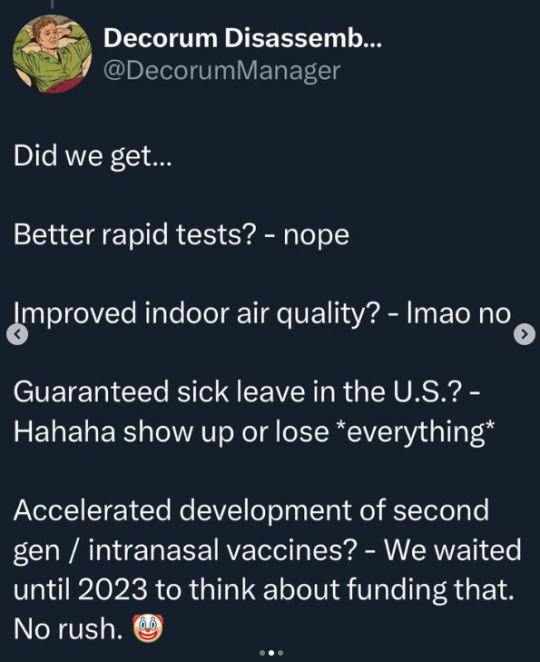
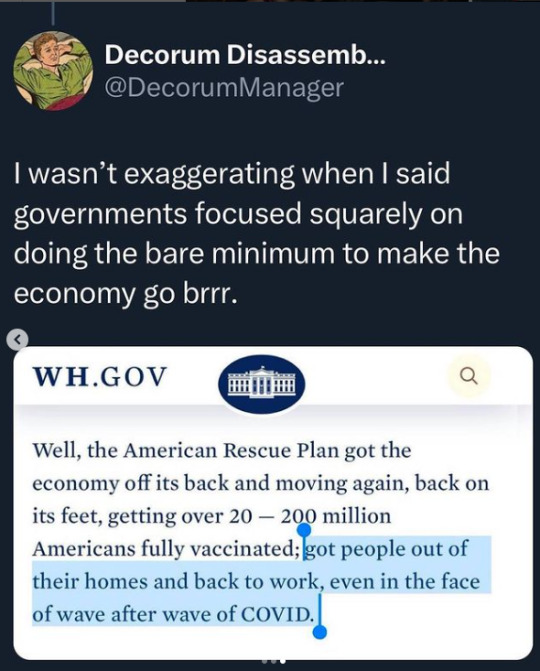
When those in power constantly lied about the little things, it isn't hard to see why people have tuned out--and even questioned whether masks were even effective against the virus.
#coronavirus#long covid#covid 19#pandemic#america is a failed state#dump the duopoly#america is a shithole country#fuck the system#fuck them all
12K notes
·
View notes
Text
The CDC is trying to limit the new COVID booster to only people 75+, pregnant people, and the immunocompromised.
We have two days (as of September 6th, 2023) to let them know this isn't acceptable.
(since there is some lack of visual comprehension in the comments, each picture has the link to the tweet just under the picture)
Under this first tweet is the link directly to the article Laurie put in her tweet and is quoting.

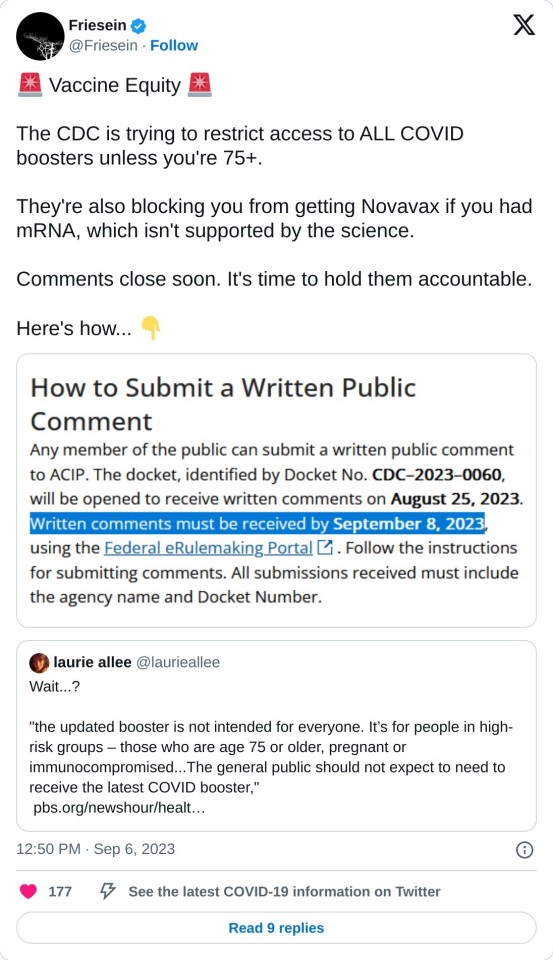
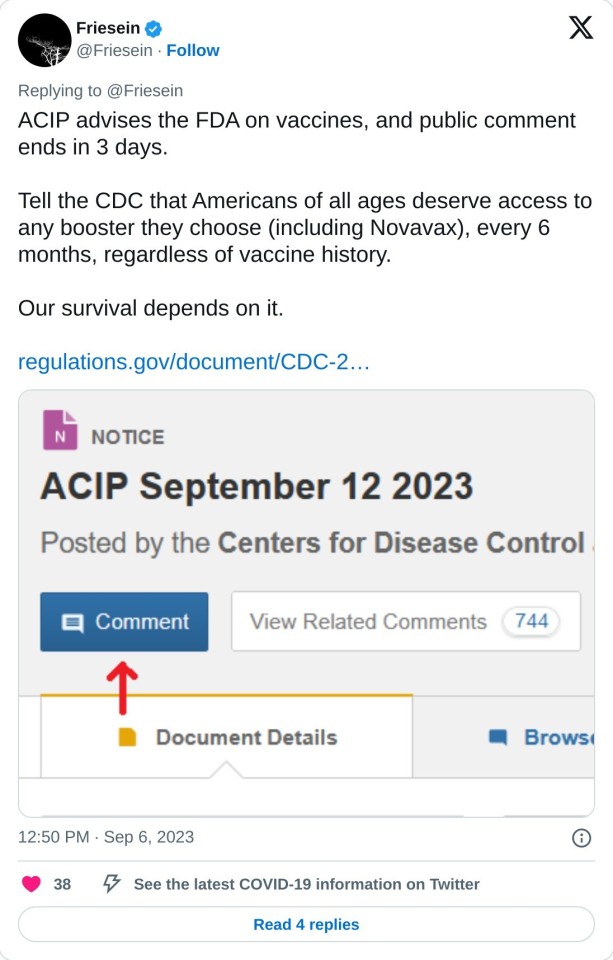
Direct link to the page to submit your comments: click here!
Please, PLEASE fill this out and boost this post!
For those of you getting mad at me in the comments and reblogs: saying vaccination is only recommended for groups IS a way to try to prevent people from getting vaccinated because EVERYONE NEEDS THE VACCINE! Everyone needs to know they should get the vaccine!
It's not that hard to figure that out.
Dr. Eric Feigl-Ding did the original reporting on this. I put a link to his thread in one of the reblogs, and I'm not going to be your Google beyond saying that. Go to his Twitter. Go check out Friesein's tweet thread.
#covid#covid19#covid 19#long covid#health#signal boost#the cdc#fuck the cdc#urgent#news#covid isn't over#mask up#wear a mask
10K notes
·
View notes
Text
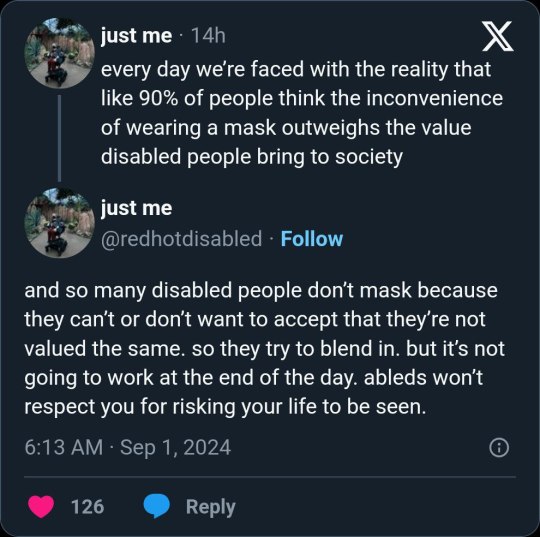
#covid 19#long covid#covid isn't over#still coviding#covid#coronavirus#corona virus#corona vaccine#mask up#wear a mask#mask#occupational health and safety#ausgov#politas#auspol#tasgov#taspol#australia#fuck neoliberals#neoliberal capitalism#anthony albanese#albanese government#health#mental health#healthcare#health & fitness#health and wellness#healthylifestyle#virus#germs
869 notes
·
View notes
Text

#mask up#long covid#covid conscious#covid#pandemic#wear a mask#public health#covid 19#wear a respirator#still coviding#coronavirus#sars cov 2#covid is airborne#wear a fucking mask#covid is not over
275 notes
·
View notes
Text
I'm just a girl
Standing in front of a procession of medical specialists
Asking them to figure out what the fuck is wrong with me
#two days in a row#a specialist has told me I'm a unique case#don't “you're not like the other girls” me#long covid#fuck covid#disability
684 notes
·
View notes
Text
more fake texts :)
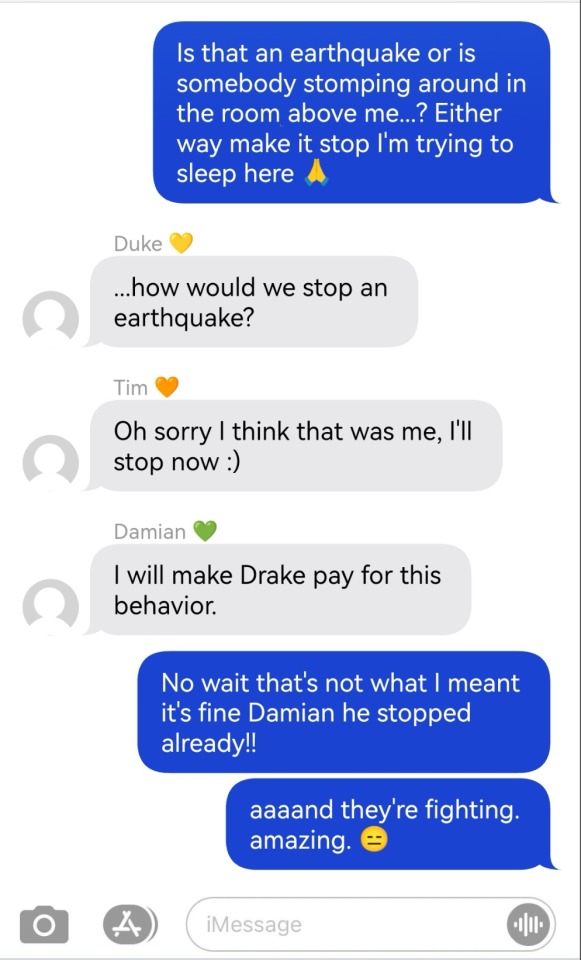
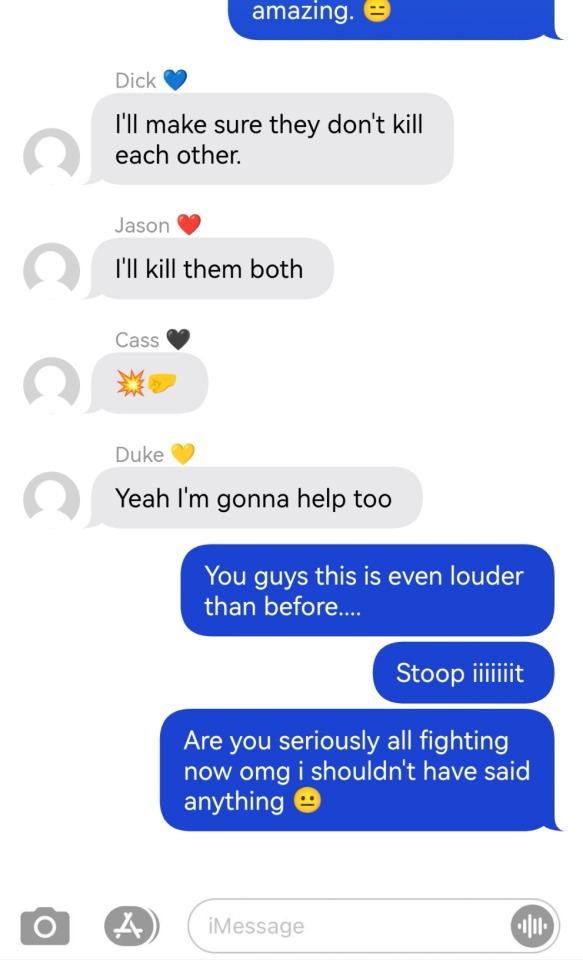
Dad to the rescue!
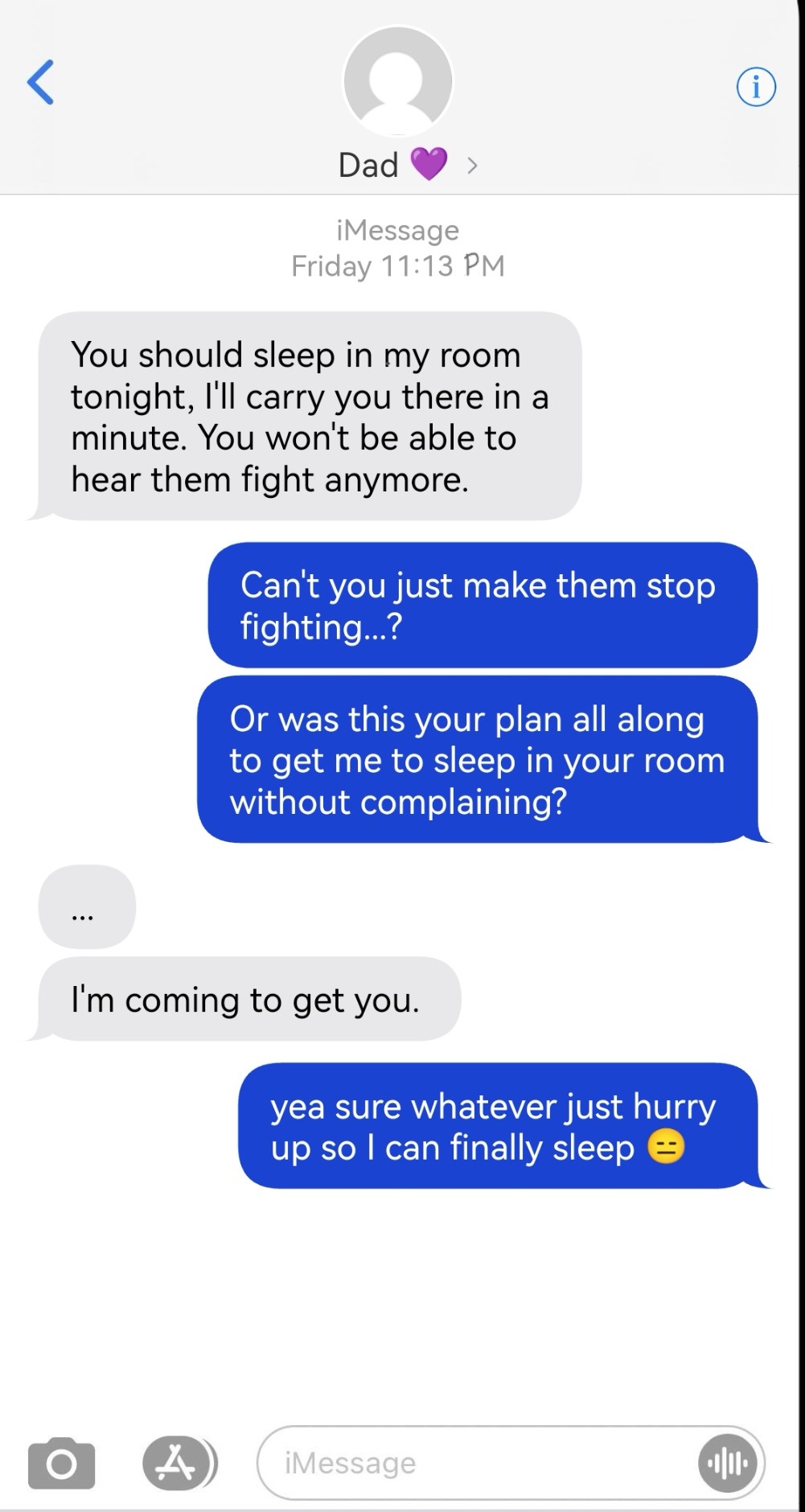
#sorry only long covid posting rn bc I'm daydreaming about people carrying me all day lol walking is seriously fucking me up..#yandere batfam#yandere batfamily#yandere dc#yandere batman#yandere#yandere!batfam#yandere!batfamily#batfamily x reader#batfam x reader#x reader#reader insert#lycheewritings#platonic yandere#yandere texting
829 notes
·
View notes
Text
Me as a kid: why does Mom always nap when we come back from the grocery store?? That's ALL we did!
Me now: okay... cold stuff put away... I'll organize the rest later... I need to lay down ;;
57 notes
·
View notes
Note
His head shapeshifts anything he wants, can Gabe do the birb dance with a birb head?
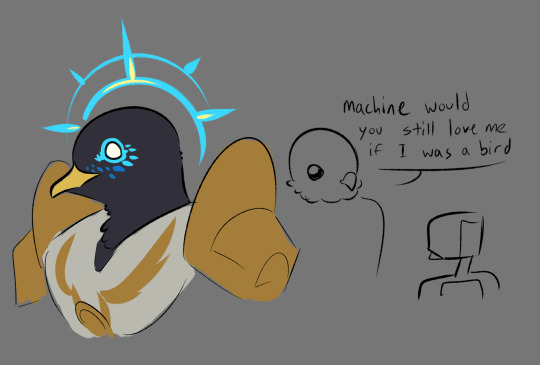
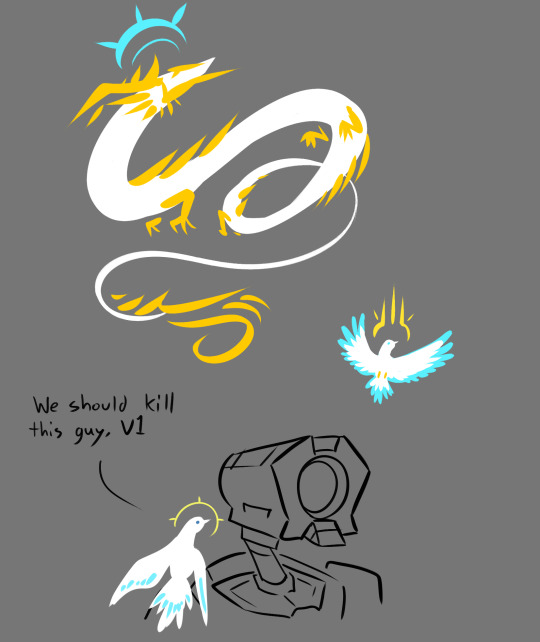
if he wanted to do a birb dance why stop at changing only his face
#the animal shapeshifting is just an old party trick he used to appear before humans so long ago#v1 can hold gabriel like how they hold the florp..... the fishstick..#ask#art#ultrakill#gabriel ultrakill#v1 ultrakill#what if you wanted to draw but covid said fuck u
357 notes
·
View notes
Text
Long covid is hell. Wear a fucking mask.
#long covid#wear a fucking mask#covid#covid 19#pandemic#covid isn’t over#my post#personal#original post
169 notes
·
View notes
Text

Hmmm I wonder what happened in 2020 that might have caused this...
This is literally what a lot of people were saying could happen during the pandemic.
And now Sunak wants to punish these people further. Fuck him.
165 notes
·
View notes
Text
Why are ppl scared to call it what it is and say we’re still going thru covid on top of seasonal illness. Like. That’s pretty important right. I was watching the news and they were like oh yeah we have an unprecedented number of flu cases “as well as other sicknesses” without actually saying Covid. No announcement abt vaccinations or masking or anything. Also if I hear someone joking abt “war flashbacks” for mentioning covid I fucking hate u
#source: most of my family members are nurses and it was so bad for one of them they had to be put on a ventilator. in the hospital they#worked at. looking back I think I had a reason to feel a little offput by the shows of support early pandemic#with people tying blue ribbons around trees and lighting signs blue to support healthcare workers#I get that it was supposed to be moral support when we couldn’t do anything but follow health advisories#and it did matter to make them feel uplifted and do something than nothing. im not gonna deny that#but. you can still help now. u know that right. you still have a responsibility here#u can still mask up. u can still get vaxxed and call in sick to avoid infecting others#don’t leave it on healthcare workers to pick up the pieces just because they were doing it before. do u think they had a choice?#nobody likes picking up the slack for someone else and now that we have more tools to do smth couldn’t we just. do it????#im not a virologist but i also feel like continuing to let it get worse by letting more mutations develop#could continue to set us back since this virus is pretty good at fucking us up long term and finding new ways to do that#while there are ppl still researching covid which is STILL A RELATIVELY NEW VIRUS. and studying possible treatment and cures#yapping#vent
395 notes
·
View notes
Text

Answer: they dont wear a fucking mask during a fucking airborne pandemic.
#pandemic#covid 19#still coviding#covid isn't over#long covid#covid#coronavirus#corona virus#ausgov#politas#auspol#tasgov#taspol#australia#fuck neoliberals#neoliberal capitalism#anthony albanese#albanese government
344 notes
·
View notes
Text
Also preserved in our archive
#no smarmy comment on this one#just... fuck...#covid#covid news#mask up#public health#wear a mask#pandemic#covid 19#coronavirus#sars cov 2#still coviding#wear a respirator#covid conscious#covid is airborne#covid isn't over#covid pandemic#covid19#covidー19#long covid
99 notes
·
View notes
Link

Photo: Shannon Turner (she/they), finds themself in and out of the hospital due to waterfall effects related to the interplay between long COVID, psoriatic arthritis, antiphospholipid antibody syndrome and autoimmune diseases at a local hospital in Philadelphia, PA, U.S., May 3, 2023. REUTERS/Leah Millis
Summary
Long COVID symptoms can persist for years, with slim chance of full recovery
Funding and attention for long COVID research are dwindling in many wealthy countries
Long COVID symptoms can include extreme fatigue, brain fog, breathlessness and pain
LONDON, Nov 14 (Reuters) - There are certain phrases that Wachuka Gichohi finds difficult to hear after enduring four years of living with long COVID, marked by debilitating fatigue, pain, panic attacks and other symptoms so severe she feared she would die overnight. Among them are normally innocuous statements such as, "Feel better soon" or "Wishing you a quick recovery," the Kenyan businesswoman said, shaking her head.Gichohi, 41, knows such phrases are well-intentioned. "I think you have to accept, for me, it’s not going to happen."
53 notes
·
View notes